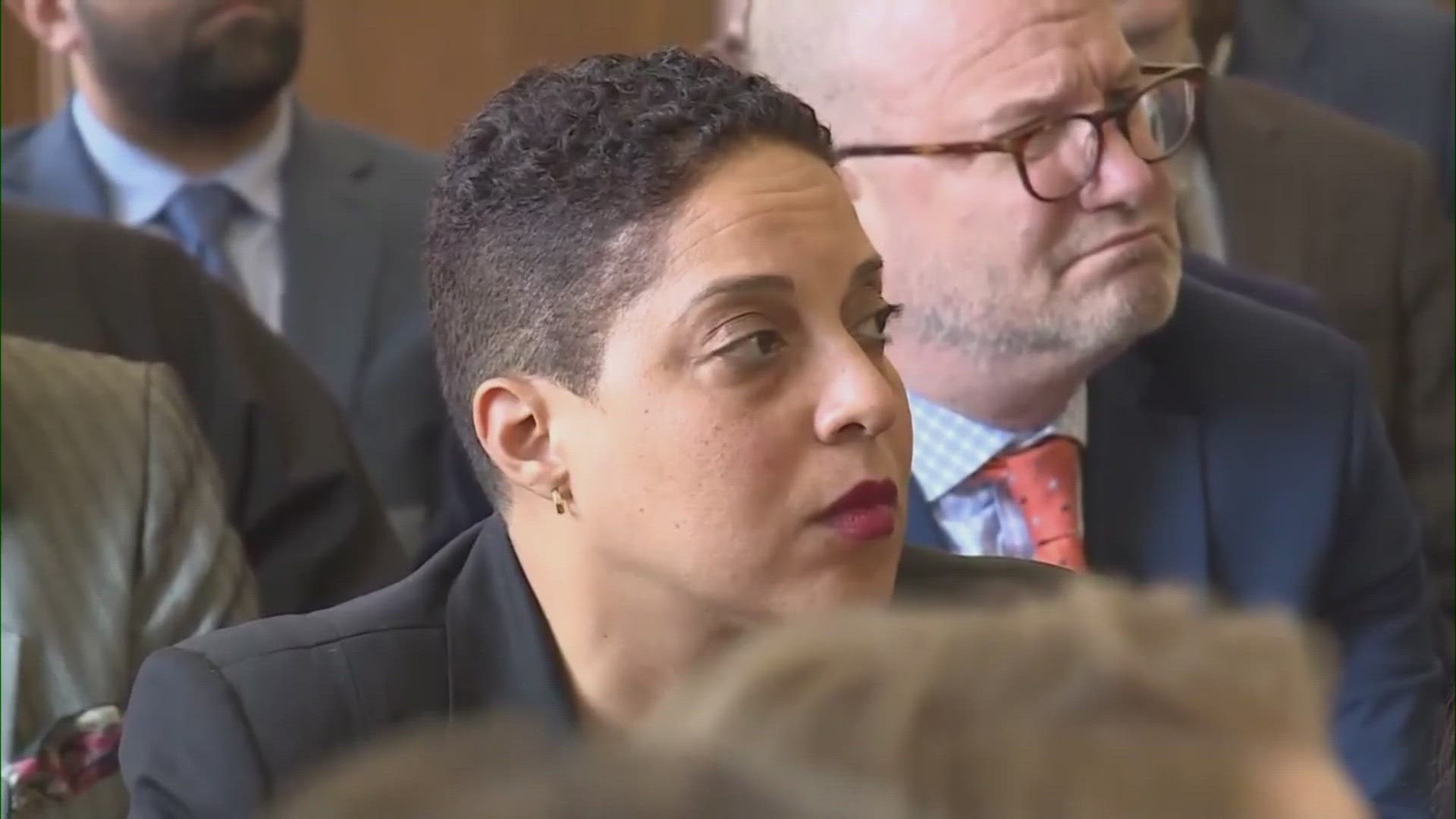ST. LOUIS — A lot of what happened in St. Louis's 22nd Judicial Circuit this week can be described in one word: rare.
First, prosecutors from St. Louis Circuit Attorney Kim Gardner’s office did not show up for a murder trial.
Rare.
So, the judge issued an order giving Gardner or someone from her office seven days to tell him why they shouldn’t be jailed, fined or both for being in contempt of court as part of what’s called a “show cause order.”
Also, rare.
Then, the Missouri Attorney General’s Office appeared before a judge Tuesday to argue why Gardner should be removed from office as part of a quo warranto process. It’s only happened about a dozen times in the 150 years or so since the process was enacted, and it’s only been successful twice.
Rare.
At the same time Gardner was sitting in that courtroom listening to attorneys argue over whether she is willfully neglecting her duties as the city’s top prosecutor, a judge in the courthouse in another courtroom was doing something on an assault case that is – you guessed it – rare.
Judge Clinton Wright issued what’s known as a “directed verdict” from the bench in an assault case stemming from a 2020 shooting outside Pop’s Kitchen along Washington Avenue.
It’s what judges do in extremely rare instances in which they believe the state has not presented enough evidence upon which a reasonable jury could base a decision of guilt.
The assistant circuit attorneys on the case involving Travis Petty did not turn over DNA evidence connecting Petty to the scene during the discovery process, according to a source familiar with the case.
A police summary of the incident in question prosecutors used to charge Petty, 33, for the November 2020 shooting can be summarized as follows:
Petty “engaged a female employee in conversation judged to be offensive by her two male coworkers.”
Those two male coworkers escorted Petty out to the sidewalk. One of them held Petty while the other struck him, according to the documents.
“During a break in the fight, defendant retrieved a pistol and fired a shot in the air,” according to the documents.
The two men then began “to retreat back toward Pop’s Kitchen entrance,” when Petty fired a shot that struck one of the men in the femur before fleeing the scene in his car.
The judge told prosecutors that the discovery violation involving the DNA evidence meant that the state could not enter it into evidence at trial, according to the source.
Without that evidence, Wright did not believe the jury could connect Petty to the crime, according to the source.
A document shows Wright then acquitted Petty from the bench.
The circuit attorney's office spokeswoman Allison Hawk issued a statement responding to the ruling:
"This case, as in every case, the circuit attorney’s office uses its best efforts to provide discovery. Critical evidence from law enforcement also was key to this case, and was not received until the morning of the trial. Though a jury was selected, the judge elected a directed verdict over the state’s objection.
"We will continue our efforts to hold this defendant accountable and are reviewing our options. In every case, the circuit attorney’s office is dedicated to ensuring that the office carries out its duty to prosecute criminal cases in a manner that seeks justice on behalf of the residents of the city of St. Louis."
On Friday, the police department's spokesman Sgt. Charles Wall fired back with a statement disputing Gardner's statement.
"If the 'critical evidence from law enforcement also was key to this case, and was not received until the morning of the trial' the CAO is referencing is the DNA report that was being testified to just prior to the judge issuing his directed verdict, then the statement provided to you by the CAO is not accurate.
Wall said police records show DNA was first collected at the scene in 2020, and the crime lab completed an initial report. For a full report, additional DNA samples were needed.
Prosecutors asked for the DNA report on Jan. 10, and told an additional DNA sample was needed.
Then, on Feb. 3, the detective investigating the case delivered the additional DNA sample to the laboratory and on March 14, 2023, the full DNA report was completed and delivered to Gardner's office electronically.
On April 13, 2023 -- five days before trial -- the DNA analyst met with the prosecutor's office in preparation for the trial and Gardner's office was in possession of the full DNA report at that meeting, Wall wrote.
"I am not aware of any other evidence in this case that the CAO was provided on the 'morning of the trial,'" Wall wrote.
When the judge issued his ruling from the bench, jurors were confused, according to a source familiar with the proceedings.
Not uncommon when one sees something rare.
Judges do not speak about their decisions beyond their written orders, so Wright declined to comment on the case.
Generally speaking, however, an attorney who is representing Wright and the rest of his 30 or so fellow elected judges spoke for them Tuesday during the first hearing to remove Gardner from office.
That attorney, retired Judge Booker Shaw, kept it short.
“I’m here on behalf of the judges in the 22nd Judicial Circuit for one reason only, and it’s something you’ve already alluded to judge and I’m sure that you understand,” he told the judge. “The practical effects and uncertainty of the situation we’re in now have placed the judges in an untenable and unsustainable position.
"Whatever the cause of it, the Circuit Attorney’s Office is now in a state of near total collapse. An expedited resolution of this matter is very important. It will benefit the parties, the court, victims, citizens, defendants and all concerned.”
And it will be rare.

